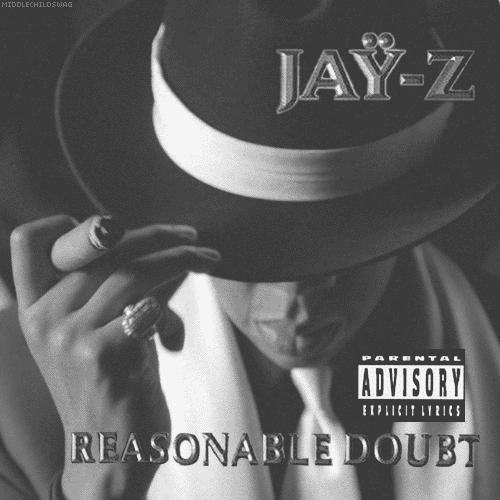Jay Z Reasonable
Posted By admin On 06.11.18He was only going to make one album. So goes the story of Reasonable Doubt, anyway, a tale Jay Z has regaled us with at every opportunity since its release on a new and unproven independent label called Roc-A-Fella Records. It was the album he made before the world was listening, with only a close crew of friends and associates at the late age of 26.
Every contributor was paid in bags of cash, piles so mountainous nobody involved could be mistaken how they were acquired. It was the valedictory statement of a drug kingpin and the commencement of a brand, a lifetime’s worth of private thoughts discharged before the true business of empire-building could begin.

Grand opening; grand closing. Shawn Carter has always been fiercely protective of his first full-length, to the degree that it sometimes feels like it belongs more to him than to us. He keeps yanking it from streaming services, as if the album is a troubled prep-school kid. He’s thrown it a series of lavish birthday parties, celebrating its 10th anniversary with a full-concert performance in 2006 and commissioning a documentary to air only on his TIDAL streaming service for its 20th. He has curated its legacy so assiduously that Reasonable Doubt seems like the one part of his story about which he remains insecure, the piece of his legacy that might blink out if he didn’t take care of it. Perhaps he’s never forgotten its relatively inauspicious release.
Aug 17, 2014 Jay-Z Reasonable Doubt track # 2.Politics as Usual. Category Music; Song Can't Knock The Hustle; Artist Jay-Z; Album Reasonable Doubt; Licensed to YouTube by Live Nation Video Network, AdShare MG for a Third Party (on behalf of Damon Dash. June 25 marks the 20th anniversary of Reasonable Doubt, Jay Z’s first album. To commemorate, we’re celebrating with Jay Z Day. The dubbed cassette arrived at his Mississippi home via FedEx.
Jay Z Reasonable Doubt Samples
“Ain’t No Nigga” was a hit, for sure, and the album was certified Gold on its release; solid, but hardly world-conquering in the dynastic era CD sales. Critics were impressed, but not overly so: Mainstream and non-hip-hop publications noted it was clever at times but mostly a rehash of Scarface and gangster-movie tropes.

Jay Z Reasonable Doubt Mp3
The Source gave it 4 out of 5 mics—approving, not rapturous. The smaller but more influential world of hardcore rap intelligentsia paid attention to him, but in the shadow of Biggie and Pac, Jay felt like a lesser myth. He announced the album with a statement that he was retiring and henceforth “would only be about the business.” In some alternate universe, that might’ve been it. In Jay’s mind at least, the album certainly marked the end of an era.
Adnes Reeves
At this point, by his own cold-eyed accounting on the song “Politics As Usual,” he had been selling drugs for “10 years.” Along a parallel track, he had been flirting furtively with being a rapper. He linked up with Big Jaz (later Jaz-O), doing a stint as the older man's baby-faced sidekick and kicking the triplet-time “figgity-figgity”-style flows that were sweeping New York at the time.
He toured, briefly, with Big Daddy Kane, and spit some freestyles for New York hip-hop radio. He was an impressive local kid, but no one’s idea of a worldwide star. In that murky time between his puppyish Jaz-O beginnings and his sober and assured reappearance on Reasonable Doubt, he figured some things out. First, nobody wanted to hear Jay Z excited.